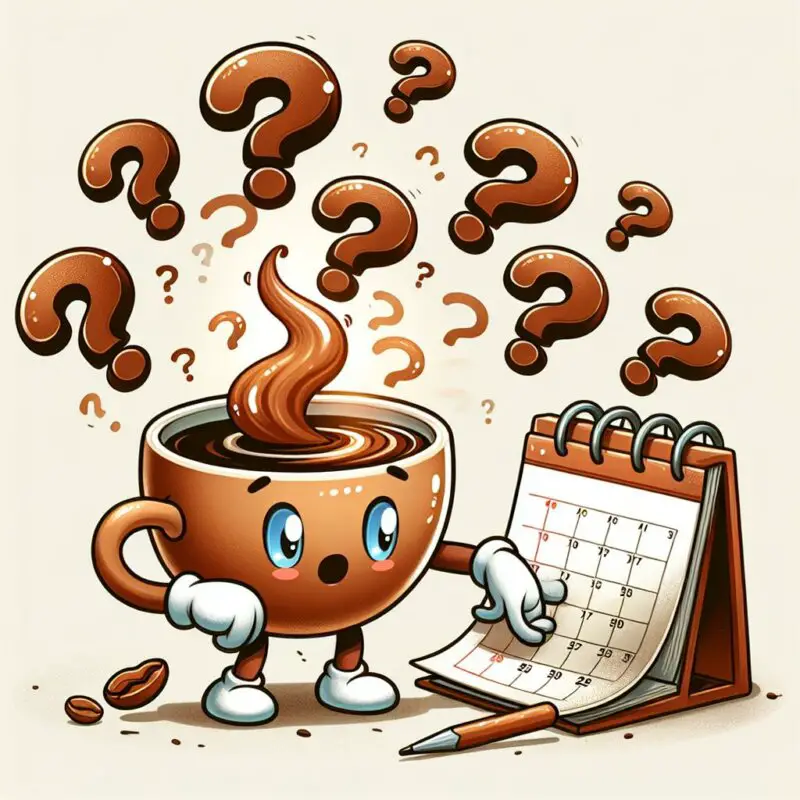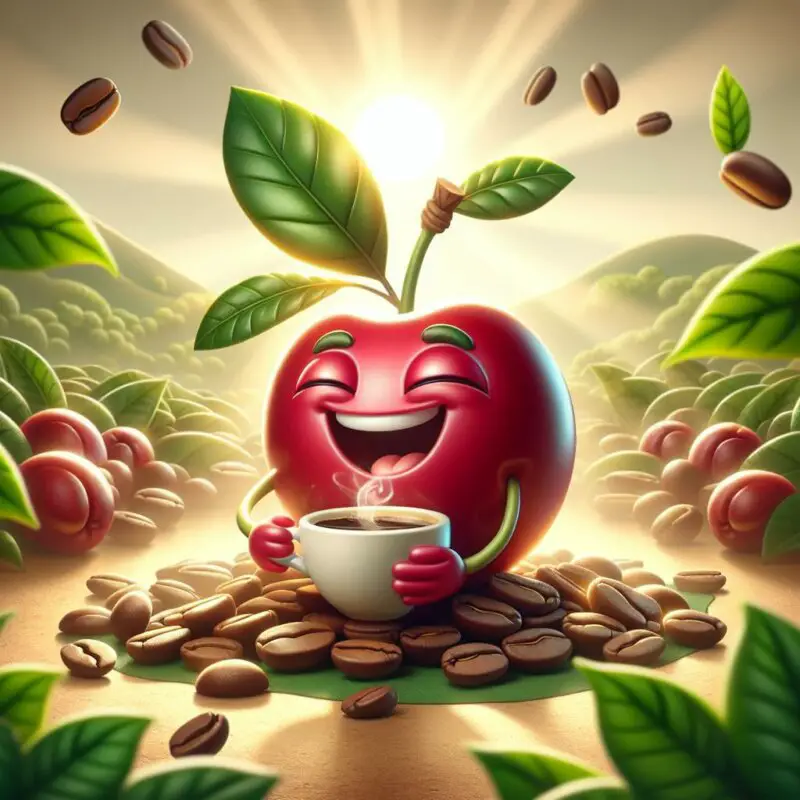This post may contain affiliate links. Please read my disclosure for more info.
As a coffee writer, I constantly search for fresh ways to say “coffee.” Luckily, there’s a whole world of coffee slang, nicknames, and synonyms waiting to be explored. Perfect for keeping things interesting!
I’ve chosen a few of my top coffee terms to share with you! We’ll explore some fascinating names, uncovering why we call coffee “Joe,” the origins of “Java” and “Mocha,” and much more. Stay tuned for an exciting coffee journey!
Get ready to dive into coffee lingo! Whether it’s “cup of Joe”, “bean juice”, or “sludge”, let’s explore the fun side of coffee talk.
Coffee Slang Names
Coffee names from its appearance

Black coffee is often nicknamed after its look – similar to oily or murky liquids.
- Dirt
- Mud
- Ink
- Oil
- Sludge
- Worm dirt
Energy-driven coffee names

We sip coffee to kickstart our day. Though we now know caffeine doesn’t boost energy but rather fights off tiredness, the drink’s energizing fame remains.
- Go juice
- Jitter juice
- Brain juice
- High octane
- Wakey juice
- Morning jolt
- Liquid energy
- Caffeine infusion
- Rocket fuel
- Leaded (caffeinated only)
- Unleaded (decaf only)
- Forty weight
- Cupped lightning
- Morning fix
Coffee terms based on its acidity
Did you know that even low-acid coffees are more acidic than water? It’s true for most drinks, but coffee really lets that tangy taste shine through. Whether that zesty flavor is your cup of coffee or not, it’s all part of the fun coffee talk we all enjoy.
- Battery acid
- Varnish remover
Coffee names that are more literal
Did you know many coffee names come from how it’s brewed or its ingredients? While not every name fits every coffee, we use them all the time. It’s like uncovering coffee secrets hidden in plain sight!
- Perk
- Brew
- Cuppa
- Bean juice
- Hot stuff
- Dirty bean water
- Café noir
- C8H10N4O2 (as a chemist, I have to include this one)
- Morning brew
Coffee names that require more explanation
In the next sections, we’ll dive deeper into these unique coffee names. Unlike others, their origins aren’t immediately clear. Stick around to uncover their fascinating stories.
- Cup of Joe
- Java
- Mocha
- Jamocha
Why Is Coffee Called Joe?
Did you know the term “cup of joe” for coffee first popped up in a 1936 book? But where this catchy name came from is a mystery lost in time. There are four popular guesses about its origin.
- There was a well-known early 19th-century New York City coffee roaster named Martinson Joe. Cup of Joe may be a reference to his coffee.
- Josephus “Joe” Daniels was the Secretary of the Navy that banned alcohol from US naval ships in 1914. His move made coffee the strongest drink on these ships and may have led to the coffee term: a cup of Joe.
- Joe may be a shortened version of Jamocha (or the related Jamoke), as this was a popular term for coffee in the 1930s.
- The most boring option, in my opinion, is that a cup of Joe may be a reference to coffee being the drink of the average Joe.
Why Is Coffee Called Java?

In the 17th century, Dutch traders introduced coffee to Java, an Indonesian island. Initially, “Java” meant coffee only from there. But soon, Java turned into a major coffee provider globally. This made “Java” synonymous with coffee in general, not just beans from that island.
Discover the magic of Sumatran coffee beans, Indonesia’s star. Yet, Java’s rich history has deeply influenced coffee lovers worldwide.
Why Is Coffee Called Mocha?

The tiny port of Mocha in Yemen was a giant in the coffee world’s history. Here, Ethiopian coffee beans, once a hidden gem, found a spotlight. Mocha turned these beans into global stars, becoming the go-to source for coffee for hundreds of years.
Mocha, like Java, refers to beans from a region that became almost a byword for coffee.
Times have evolved, and so has the term “Mocha.” The historic port is long gone. Nowadays, asking for a Mocha at your local coffee spot means you’ll get a caffè mocha. It’s a chocolatey twist on a latte, far removed from its Yemeni origins.
Jamocha = Java + Mocha
Back in the late 1800s, when “Mocha” simply meant coffee, a cool new term popped up: “Jamocha.” It’s a mash-up of “Java” and “Mocha,” and quickly became another fun way to say coffee.
Mocha’s meaning has evolved, and now, jamocha often blends chocolate and coffee, not just plain coffee anymore. It’s a tasty twist for coffee lovers!
Wait! Doesn’t Cuppa Mean Tea Not Coffee?
You’re right on target, and that’s the best way to be! While the British might always use that word for tea, we Americans often mix up British slang. This can give words entirely new meanings, and that’s exactly what’s happening here.
Avoid saying “cuppa” for coffee in Britain or to Dr. Who fans in the US. Elsewhere, you’re likely okay!
Origin of the Word Coffee

Dive into the history of coffee and discover its roots! Starting in 1582, the English word “coffee” came from the Dutch “koffie,” which itself traces back to the Arabic “qahwah,” meaning a type of wine.
Tracing the roots of qahwah, coffee’s ancestor, is a bit of a mystery. It could hail from Ethiopia’s Kaffa, the birthplace of coffee beans. Or, it might stem from the Arabic word for no hunger (qahā) or even for strength (quwwa).
Are There Other Terms for Coffee?
Absolutely! Coffee has so many fun nicknames and slang terms, all thanks to its huge popularity. That’s just in English! And we haven’t even started talking about all the different types of coffee, like espresso. It’s a whole world of coffee lingo to explore!
Hey coffee lovers! Ever wonder what cool coffee slang people use in different parts of the world? I’m super curious! If you’re from somewhere outside the US, drop a comment with your favorite coffee terms and a little story about where they come from. Can’t wait to hear from you!







